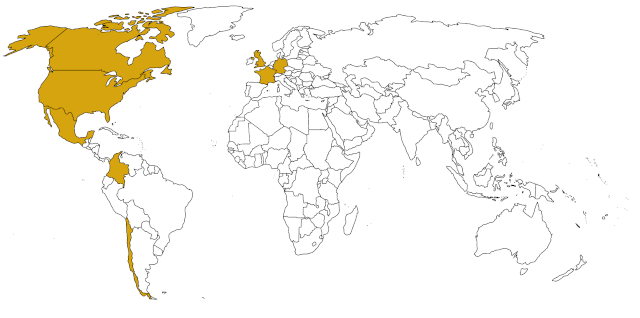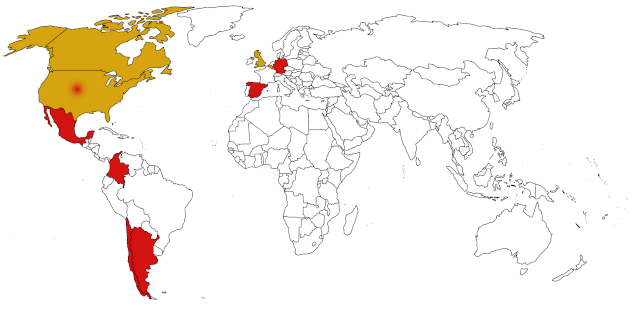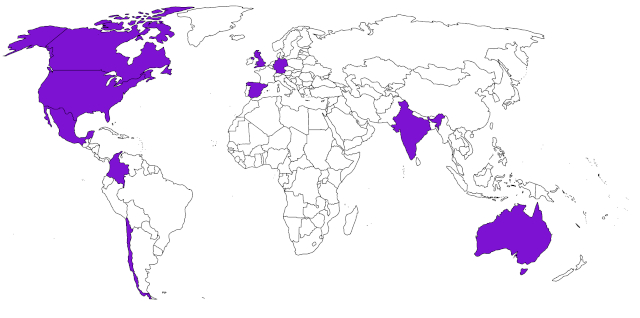 Map showing the countries where our editors currently live
Map showing the countries where our editors currently live
Late in 2016 I wrote a blog post about where our contributors came from. The post was part celebration, and part self-reflection for our team - a chance to see if we were as diverse and globally representative as we might have liked to think.
Two and a half years later, and with an almost entirely new team in control, I thought it was time for another check-in. The map above shows where our current and past editorial team lives. As you can see, we’re a fairly Western bunch, but I think we’re quite proud that we’ve managed to grow substantially beyond the borders of Canada and the United States where we started. Our latest editorial board members even include Riva Quiroga, from Chile, giving us a voice in yet another part of the globe.
 Map showing the countries where our authors and translators came from
Map showing the countries where our authors and translators came from
The second map shows where our authors and translators lived when they contributed to the project. This is based on institutional affiliations rather than nationality. Gold entries show English-language contributions, and red ones show Spanish-language lessons. This one was a surprise for me, because apart from a lesson written by some colleagues in Belgium, our English-language offering remains a Canadian-American-British affair. Interestingly, we still haven’t had any contributions from Australia, New Zealand, or South Africa, despite large English-speaking populations. Perhaps a sign that we need to reach out to these communities.
 Map showing the countries where our readers come from
Map showing the countries where our readers come from
Finally, map 3 shows our top ten sources of readers in the past 365 days. In order they are:
- United States
- India
- Spain
- Mexico
- United Kingdom
- Germany
- Colombia
- Canada
- Chile
- Australia
A quick snapshot, but one that I hope will encourage participants in countries not yet represented to come forth (read how on our Contribute Pages), and a challenge to our team to keep striving to make the project as global as possible.
Thanks as always, to all of our contributors, past, present, and future.
About the author
Adam Crymble, University College London.